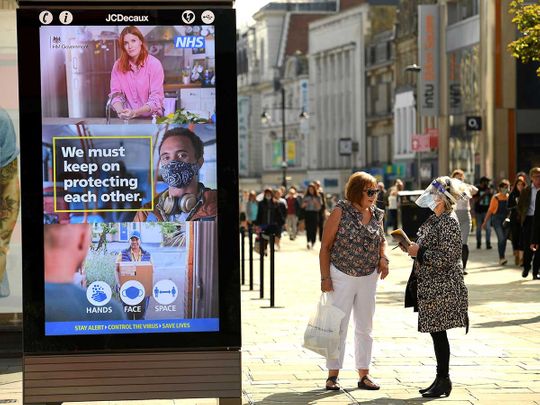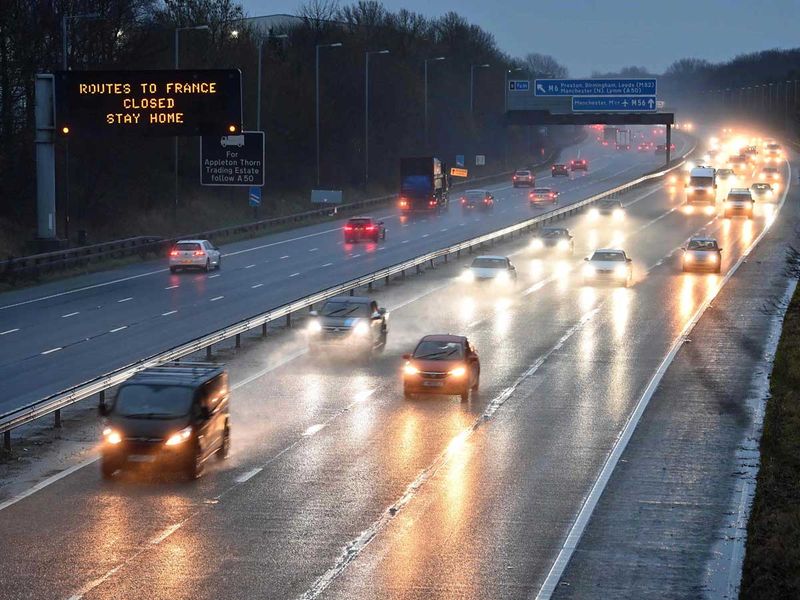
London: UK retail sales fell unexpectedly at the sharpest pace since the economy was in lockdown in January, signalling a sharp recovery may be loosing momentum. The volume of goods sold in shops and online dropped 2.5 per cent last month after a 0.2 per cent gain in June, which was revised down from a previous estimate, the Office for National Statistics said.
The figures along with a weaker inflation reading earlier this week ease pressure on the Bank of England to pare back its stimulus programme. The central bank has warned that consumer price increases may surge to double its 2 per cent target by the end of this year - a slower pace of spending reduces that risk.
"With the UK's recovery lagging behind that of other major economies, the return of holidays, social events including weddings and the general easing of restrictions last month hasn't turbocharged consumer spending in the way many hoped it might have," said Aled Patchett, head of retail and consumer goods at Lloyds Banking Group.
Not driving around much
Fuel sales fell for the first time since February, partly due to wet weather that cut the volume of traffic on roads. Food sales also declined as the lifting of restrictions on hospitality boosted spending in bars and restaurants and also normalized after a surge during European champion soccer games in June.
Other non-food stores including chemists, toy stores and sports equipment shops reported a 10.1 per cent drop in sales, the first since February. Despite the slowdown, retail sales are still 5.8 per cent above pre-pandemic levels.

State of borrowing
A separate report showed UK government borrowing in the first four months of the fiscal year was running at little more than half the level a year earlier as the economy returned to normality after months of restrictions. The budget deficit stood at 78 billion pounds ($106 billion) between April and July, That compared with 139.7 billion pounds in the same period of 2020, when the economy was under siege from the pandemic.
"Our recovery from the pandemic is well underway," said Chancellor of the Exchequer Rishi Sunak. "But the last 18 months have had a huge impact on our economy and public finances, and many risks remain."
Brexit again
Retailers have warned that they face headwinds in the form of staff and goods shortages caused by the pandemic and Britain's departure from the European Union. While Brexit made difficulties in importing products of all kinds, a surge in coronavirus infections forced millions of workers to isolate at home, drying up the pool of available labor that was already hit by departures of foreign workers.
After a brief splurge of euphoria earlier this month that generated some of the strongest growth for retailers on record, spending patterns have shifted in recent weeks. A survey by Barclaycard, which handles almost half the nation's credit and debit card payments, showed more money going into bars, theaters and sporting events and less into face-to-face retail. The British Retail Consortium says preferences are shifting toward social gatherings that spend most of the past 18 months under harsh restrictions.
A separate report from GfK showed consumer confidence dipped slightly in August. Greater optimism about personal and national economic outlook was overshadowed by a decline in people saying now was the "time to buy" for large purchases.
"If you had the luxury of savings, people look at it and had a warm glow of security. So I don't think we're going to go crazy and spend it all overnight," Joe Staton, client strategy director at GfK, said. He added that inflation for household items might come with people saving so they have "a buffer in place in case prices do go up".








